The Witcher 3: Wild Hunt -...
Introduction The Witcher 3: Wild Hunt is an...
By Adonis Monahan2552

1
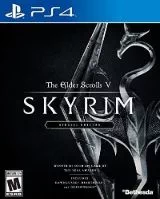
It’s difficult to discuss The Elder Scrolls V: Skyrim because of the sheer size of the game and its community. However, when reviewing the game there are certain unique elements that have to be mentioned.
The Elder Scrolls V: Skyrim is a role-playing, fantasy, adventure game, released by Bethesda in 2011. It is the fifth game in the main series of Elder Scrolls games, following Oblivion, which was released in 2006.
The game is incredibly successful, winning over 200 “Game of the Year” awards, at the time of its release. It was followed up by three downloadable contents (DLCs), Dawnguard, Dragonborn, Hearthfire, and even now continues to see remastered re-releases and introduction into new consoles, like the Nintendo Switch.
The game mainly focuses on a character called the Dragonborn, who travels the country of Skyrim on an epic quest to save it from the terrible dragon threat that was unleashed upon the land. However, what truly gives Skyrim its place in the genre is its vast number of sidequests and storylines, as well as its extremely customizable nature.
As mentioned before, Skyrim’s main strength lies in its sidequests and worldbuilding, not its main storyline. Although, the story is very much playable and new players will probably extremely enjoy it, it ends fairly quickly.
However, the game creators have packed Skyrim with enough content, such as a large number of non-player characters (NCs) and upgradeable skills, to keep players immersed in a single save file for hundreds of hours.
Nearly every town or city the player encounters contains several sidequests, allowing players to freely explore the world and stumble upon adventures to undertake with little to no effort.
The NPCs are fairly unique, with most of them having some backstory associated with them, as do the towns and cities. Dungeons and raidable fortresses are plenty, and the loot within them is quite rewarding.
In addition, Skyrim benefits from having a wide variety of skills for players to pursue, including crafting skills like blacksmithing, alchemy, and enchanting, which get more rewarding as the player upgrades them.
Players can buy and sell items from merchants, train with mentors to gain experience faster in certain skills, and even complete quests to become the leader of guilds and factions like the Thieves Guild or the College of Winterhold.
Skyrim has enough content for even the most aggressive speed-runners, and that’s without mentioning the story of the other downloadable contents Dawnguard and Dragonborn, both of whom add storylines of the same length to the main storyline.
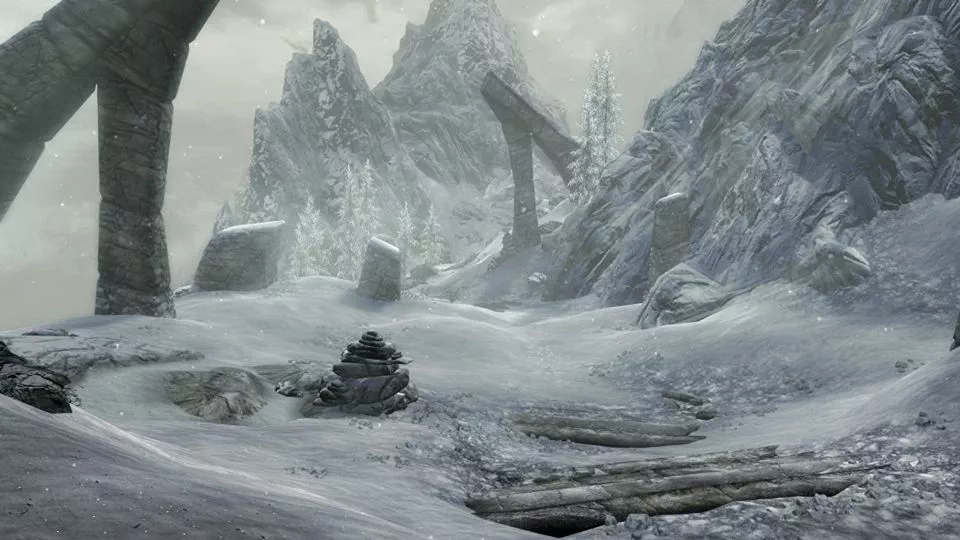 https://revyou.com/uploads/thumbnail-960/159168774388381DKyYufQML._SL1500_.webp
The Elder Scrolls V: Skyrim - Review
https://revyou.com/uploads/thumbnail-960/159168774388381DKyYufQML._SL1500_.webp
The Elder Scrolls V: Skyrim - Review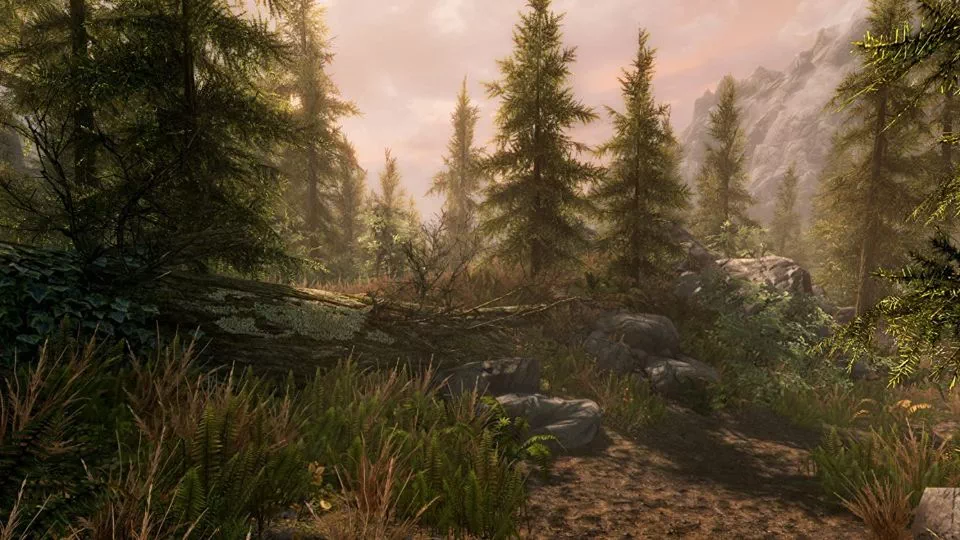 https://revyou.com/uploads/thumbnail-960/159168774388591fJmxlL4HL._SL1500_.webp
The Elder Scrolls V: Skyrim - Review
https://revyou.com/uploads/thumbnail-960/159168774388591fJmxlL4HL._SL1500_.webp
The Elder Scrolls V: Skyrim - Review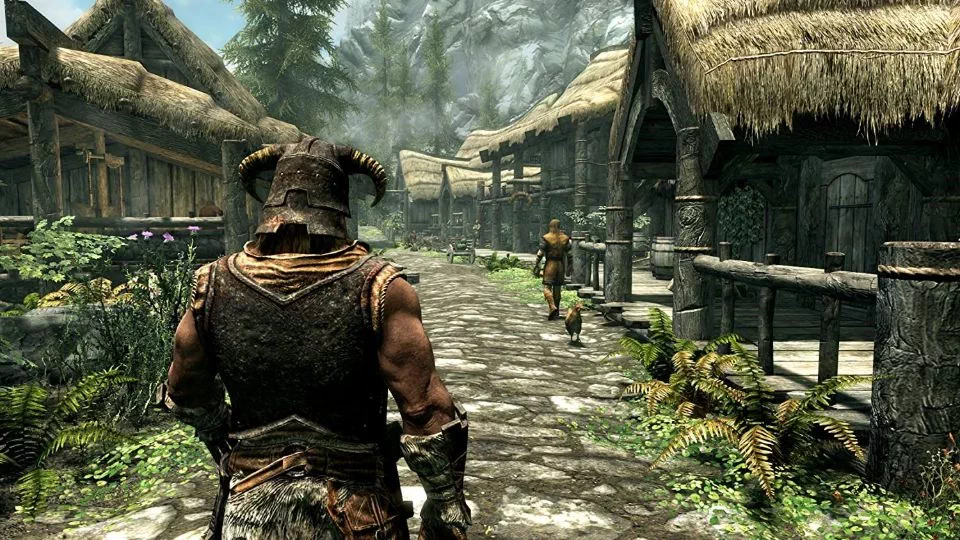 https://revyou.com/uploads/thumbnail-960/1591687743886the-elder-scrolls-v-skyrim-switch-hero.webp
The Elder Scrolls V: Skyrim - Review
https://revyou.com/uploads/thumbnail-960/1591687743886the-elder-scrolls-v-skyrim-switch-hero.webp
The Elder Scrolls V: Skyrim - Review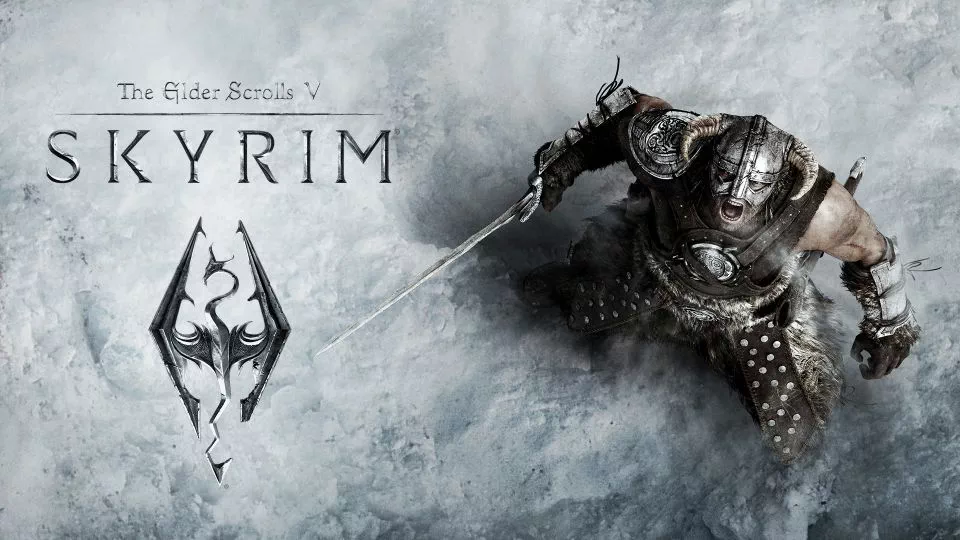
Like most role-playing games, combat is an essential part of Skyrim. And while, yes, there are many difficult bosses and monsters to fight in Skyrim, the combat is generally considered to be boring and unintuitive.
While combat methods are quite diverse, with players being able to choose between archer, warrior, and mage classes, movement mechanics make things like dodging or jumping impossible.
This reduces the combat to, relentlessly battering enemies with spells or swords. I will note that Skyrim has a relatively unique mechanic called “Shouting”, a form of magic which originates in the main storyline and is related to the dragons.
“Shouting” involves speaking in the language of the dragons to shape the world around the character thus using his inner power. Since the protagonist is the Dragonborn, a person born with the soul of a dragon; they have the ability to use this skill freely after unlocking “Words in the Dragon Tongue”.
Put simply, “Shouting” is another form of spellcasting that performs unique functions, although restricted to usage in the main storyline and Dragonborn DLC.
Customization and player freedom is Skyrim’s crown jewel; in no other RPG game does it shine quite as brightly. Nearly every aspect of the game is customizable. The character is anonymous and faceless until the player defines their race, sex, weight, and almost every other aspect.
The player speaks by choosing very clear and unambiguous dialogue options. The player has no limitations whatsoever, and can travel wherever they like throughout the map, exploring forests, plains, cities, towns, ruins, and dungeons.
There are vast numbers of collectable items and NPCs that can act like followers. Players even have the ability to buy and decorate their own homes. In fact, with the Hearthfire DLC installed, players can buy land and construct their own customizable manor and homestead, even marrying and adopting children to populate it.
Players can mine ore, chop trees, hunt animals, and do pretty much whatever they like in Skyrim, and if that’s not enough for them, there’s the modding scene.
Unlike other RPGs, Skyrim has a very large modding (slang for modifying) database, with most of it taking place on the Nexus Mods website, as opposed to the Steam workshop.
Bethesda has their own marketplace for mods, the “Creation Club,” but most of the market uses Nexus, where Skyrim-associated downloads, currently, number 1.7 billion.
Skyrim mods encompass nearly every gameplay concept imaginable, with mods existing to adjust the smallest of bugs, to DLC-sized mods that expand the map, create new quests, and radically change the basic systems in the game.
Skyrim modding alone requires its own discussion, but suffice to say that the modding community turns Skyrim from a regular AAA sandbox game to a lifestyle players can easily sink, more than a thousand hours, into.
Unfortunately, while Skyrim does really well in giving players freedom of choice and presenting a large number of quality NPCs and storylines, its primary shortcoming is its technical side.
Just like the issues with combat, Skyrim is the perfect example of how not to technically develop a video game. The game is infamous for its bugs, ranging from funny visual “glitches” to save-breaking position bugs, which can easily turn off new players.
Several updates and the re-release of Skyrim Special Edition, address some of the bigger bugs, but the core baseline of Skyrim’s construction makes it liable to breakage. Many popular mods address bugs as well, but even modders struggle when the game’s files are as unorganized as Skyrim’s are.
Being very technical, most players will only experience the surface level breaks and glitches, but players should remain aware that playing Skyrim requires consistent saving and vigilance.
The bugs aren’t necessarily game-breaking, but they can pose a significant annoyance to players trying to mod their game, and even to non-modders just trying to experience the game casually.
On the other hand, Skyrim’s soundtrack is just excellent. Composed by Jeremy Soule, the soundtrack is unique and provides Skyrim with an ambiance unmatched by many other RPGs. The different locations feel unique, and combat is incredibly immersive due to the music. If not for it, Skyrim would be nowhere near what it is today.
The Elder Scrolls V: Skyrim, is deserving of its fame and recognition. It’s one of the best games possible for the casual gamer looking to enter the world of RPG. Its expansive world and helpful characters can make players feel at ease and heighten their enjoyment as they explore the different parts of the world.
While not, technically, as impressive as other games in the same genre, Skyrim will remain an essential game in the fantasy gamer’s repertoire.
Updated 4 years ago